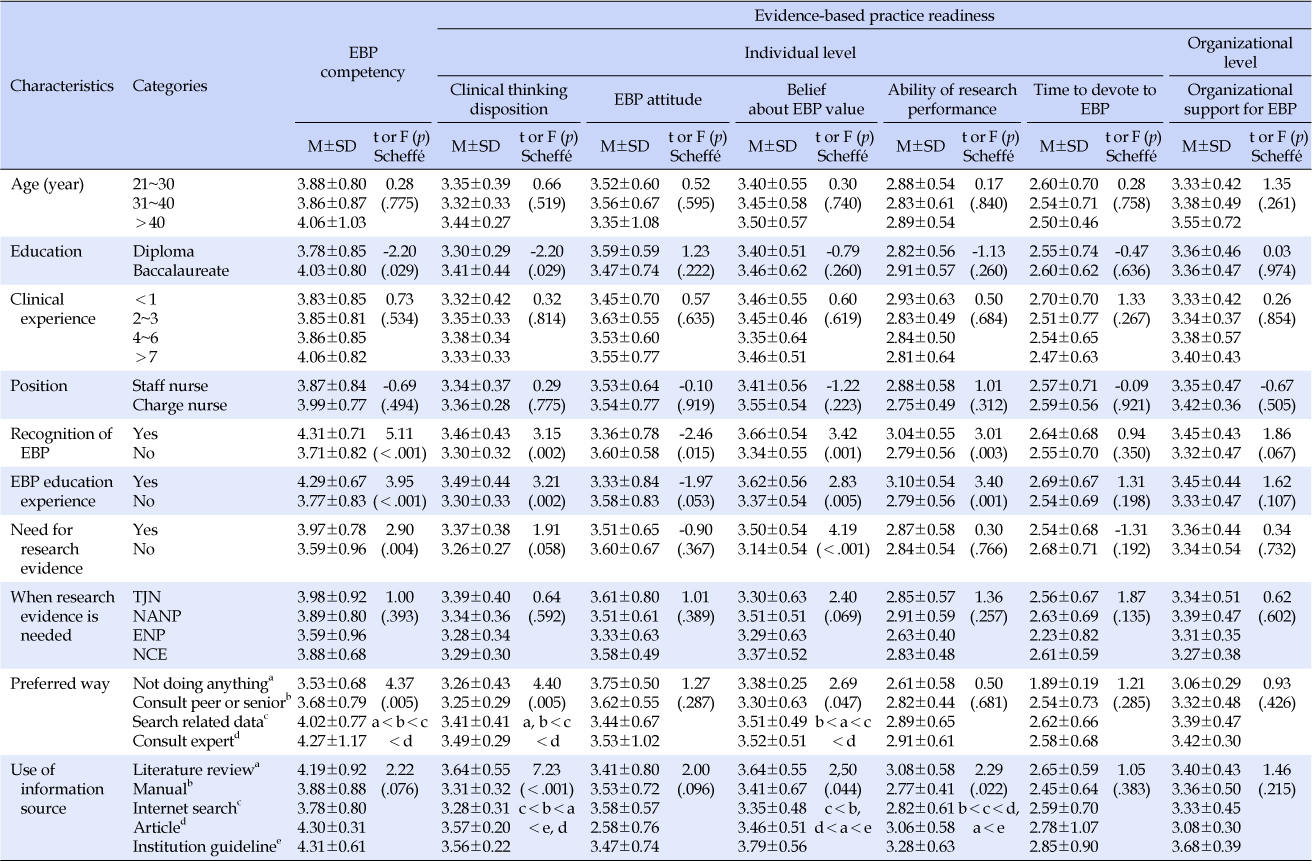1Department of Nursing, Mokpo National University, Korea.
2Mokpo Christian Hospital, Korea.
Copyright © 2016 Korean Academy of Nursing Administration
This is an open access article distributed under the terms of the Creative Commons Attribution Non-Commercial License (http://creativecommons.org/licenses/by-nc/3.0/), which permits unrestricted non-commercial use, distribution, and reproduction in any medium, provided the original work is properly cited.
This Research was supported by Research Funds of Mokpo National University in 2014.


EBP=Evidence based practice.
EBP=Evidence based practice.
EBP=Evidence based practice; TJN=Training for junior nurses; NANP=Need to know about appropriate nursing process; ENP=Errors in nursing practice; NCE=New clinical environment.
EBP=Evidence based practice.
EBP=Evidence based practice.
EBP=Evidence based practice.
EBP=Evidence based practice.
EBP=Evidence based practice; TJN=Training for junior nurses; NANP=Need to know about appropriate nursing process; ENP=Errors in nursing practice; NCE=New clinical environment.
EBP=Evidence based practice.
EBP=Evidence based practice.